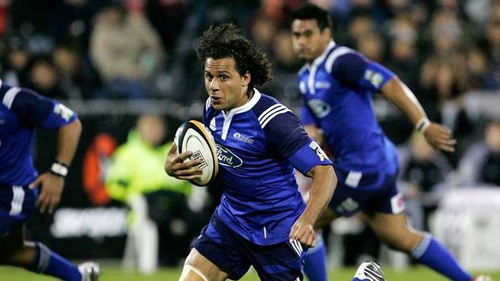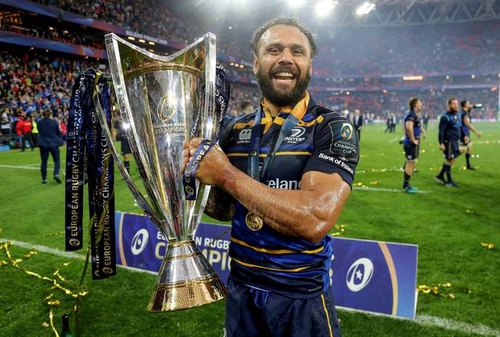
naw that former Blues player Isa Nacewa has finished his illustrious playing career, he must have been more shocked than anyone to hear that World Rugby has granted Chiefs wing Toni Pulu dispensation to play for the Wallabies.
Nacewa can claim to be the greatest All Black of the modern era who never was: the man denied the chance to represent the country of his birth due to a combination of bad advice, bad intentions and a bullish governing body that was determined to not make him a precedent case for others to cite.
World Rugby has shown the flexibility and compassion to Pulu that was never afforded to Nacewa.
The timing of which – coming just two months after Nacewa retired – must feel like the final kick in the teeth for a player who is admired and respected around the world
the respective eligibility outcomes for Nacewa and Pulu make for a fascinating contrast.
The 29-year-old Pulu, who spent three seasons with the Chiefs, was born in the US, has an Australian passport and is also eligible for New Zealand on the grounds of residency.
But, despite having a pathway to represent those three nations, his eligibility was actually captured by Niue, for whom he played sevens when he was younger.
World Rugby, however, has agreed to wipe from history his time with Niue and say that Pulu is now free to play for the Wallabies if selected
To Nacewa, this decision must rankle as one of the more glaring examples of double standards for he was not allowed to wipe from history the two minutes of test football he played for Fiji in 2003.
The same governing body denied him a similar dispensation back in 2005. World Rugby, in fact, steadfastly refused to even hear Nacewa's case – which was based on strong legal grounds that he was unduly and wrongly influenced to play for Fiji without having been
given advice on the consequences of that decision
The detail of his pathway has to be understood to see the potential injustice of how he was treated.
Born in New Zealand to Fijian parents, Nacewa made the Auckland Grammar School First XV, but not any representative age-grade teams.
In 2003, when he was 20, he was picked by Auckland to play in the NPC. His sudden rise to the provincial ranks was noticed by Fiji, who knew he was eligible and they persuaded him he was never going to be an All Black and should commit to them for the World Cup.
Having only signed a provincial rather than New Zealand Rugby contract, Nacewa at that stage had never been advised by anyone that by playing for Fiji, he would be making himself ineligible for New Zealand.
He wasn't used in Fiji's first two pool games, but was on the bench for the third, against Scotland.
With two minutes remaining, Nacewa was injected into the game, where he didn't touch the ball or make a tackle or even get close to having a meaningful action.
He was selected by the Blues and by the end of 2005, the All Blacks coaches had identified Nacewa, who was a supremely capable utility back, as a player they wanted in their 2007 World Cup squad.

of course, for that to happen, World Rugby would have to grant a dispensation and agree to nullify his two minutes with Fiji.
His case was brought to the governing body by leading corporate lawyer and sports law expert David Jones, who says World Rugby dismissed him without even hearing the facts.
He also says that Fiji coach Mac McCallion supported the case as the decision to send Nacewa on against Scotland was designed purely to capture the youngster's eligibility.
Nacewa was trapped by those two minutes – choosing not to continue to play for Fiji either as it would damage his credibility given he'd pursued legal action to try to play for New Zealand.
In the end, Nacewa was lost to all test football – a situation that became as sad as it did ridiculous as for the better part of the last 10 years, he has been recognised as one of the best players in European club rugby.
He played almost 200 games for Leinster, helping them to three European Cups – a run of success which established the club as arguably the most powerful and respected in the Northern Hemisphere.
Nacewa was forced to pay for a decision he made as a poorly advised and poorly supported 20-year-old and now he has witnessed a stunning about turn from World
Rugby in the Pulu situation.
"There is an issue here that either World Rugby has an eligibility policy or they don't," says Jones.
It's a point with which New Zealand Rugby will no doubt agree as they must wonder how Australia have managed to win the dispensation they never could
Comments